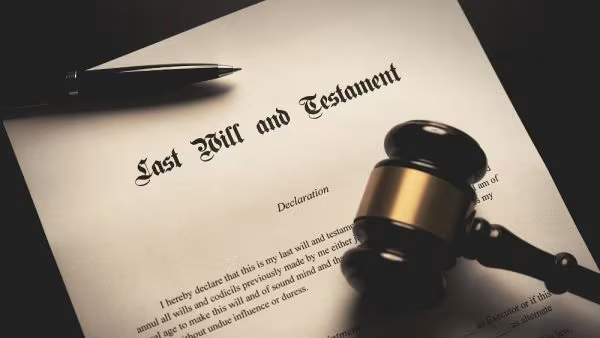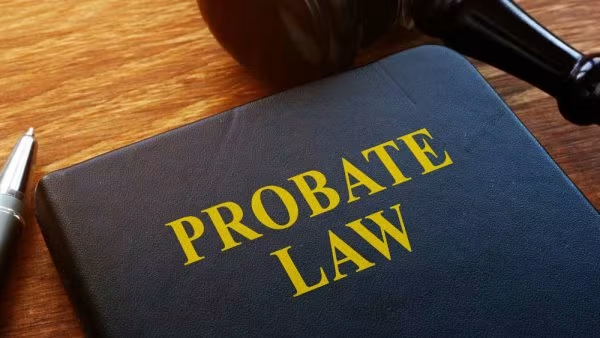Make a Will
Making a will is an essential part of planning for the future. It allows you to specify how you want your assets to be distributed after your death and ensures that your loved ones are taken care of. At Wright Street Lawyers, our experienced team can guide you through the process of making a will in South Australia, providing you with peace of mind.
What is Make a Will?
Make a will, also known as writing a will or making a testament, is the legal process of documenting your wishes regarding the distribution of your assets and the care of your dependents after your death. It is a legally binding document that ensures your assets are distributed according to your wishes and provides clarity and guidance to your loved ones during a difficult time.
In South Australia, making a will is governed by the Wills Act 1936. This legislation sets out the requirements for a valid will, including the need for the document to be in writing, signed by the testator (the person making the will), and witnessed by two independent witnesses.
It is important to note that a will only takes effect upon the death of the testator. Until then, the testator retains full control over their assets and can make changes or revoke the will at any time.
Key Elements/Types of Make a Will
When making a will, there are several key elements and considerations to keep in mind:
- Executor: The executor is the person responsible for administering your estate after your death. It is important to choose someone you trust and who is capable of handling the responsibilities involved.
- Beneficiaries: Beneficiaries are the individuals or organisations who will receive your assets after your death. You can specify how you want your assets to be distributed among your beneficiaries.
- Guardianship: If you have minor children, you can use your will to specify who you want to be their guardian in the event of your death.
- Specific Bequests: You can make specific bequests to individuals or organisations, such as leaving a certain amount of money or a specific item to a loved one or a charity.
- Residual Estate: The residual estate refers to the remaining assets after all specific bequests and expenses have been taken care of. You can specify how you want your residual estate to be distributed.
- Contingent Beneficiaries: It is important to consider contingent beneficiaries who will receive your assets if your primary beneficiaries predecease you.
- Witnesses: To ensure the validity of your will, it must be witnessed by two independent witnesses who are not beneficiaries or spouses of beneficiaries.
There are also different types of wills that you can consider:
- Simple Will: A simple will is a straightforward document that outlines your wishes regarding the distribution of your assets. It is suitable for individuals with uncomplicated estates.
- Testamentary Trust Will: A testamentary trust will includes provisions for the creation of a trust upon your death. This can provide additional benefits, such as asset protection and tax advantages.
- Mirror Wills: Mirror wills are wills made by spouses or partners that mirror each other’s wishes. They are commonly used by couples who want to leave their assets to each other and then to their children.
- Living Wills: Living wills, also known as advance care directives, are legal documents that outline your wishes regarding medical treatment and end-of-life decisions. While not technically a part of making a will, they are an important consideration for comprehensive estate planning.
It is important to consult with a qualified estate planning lawyer to determine the most appropriate type of will for your individual circumstances.
The Legal Process in South Australia
In South Australia, the legal process of making a will involves several steps:
- Consultation: The process begins with a consultation with an experienced estate planning lawyer. During this consultation, you will discuss your wishes, assets, and any special considerations.
- Will Drafting: Based on the information gathered during the consultation, your lawyer will draft a will that reflects your wishes and meets the legal requirements.
- Review and Amendments: You will have an opportunity to review the draft will and make any necessary amendments or additions. It is important to carefully review the document to ensure it accurately reflects your wishes.
- Signing and Witnessing: Once you are satisfied with the final version of the will, you will sign it in the presence of two independent witnesses. The witnesses must also sign the document.
- Safekeeping: It is important to keep your will in a safe and accessible place. Your lawyer can provide guidance on the best way to store and protect your will.
- Regular Review: It is recommended to review your will regularly to ensure it remains up to date and reflects any changes in your circumstances or wishes. Life events such as marriage, divorce, birth of a child, or acquisition of significant assets may require updates to your will.
By working with a knowledgeable estate planning lawyer, you can ensure that your will is prepared correctly and meets all legal requirements in South Australia.
Your Rights and Obligations
When making a will in South Australia, you have certain rights and obligations:
- Testamentary Freedom: You have the right to distribute your assets as you wish, within the confines of the law. However, it is important to consider the potential impact on your loved ones and ensure your will is fair and equitable.
- Careful Consideration: It is your obligation to carefully consider your wishes and the potential consequences of your decisions. This includes considering the needs and circumstances of your beneficiaries and the potential for disputes or challenges to your will.
- Legal Compliance: It is your obligation to ensure that your will complies with the legal requirements set out in the Wills Act 1936. Failing to meet these requirements may result in your will being deemed invalid.
- Seek Professional Advice: To protect your rights and ensure your will is prepared correctly, it is advisable to seek professional advice from an experienced estate planning lawyer.
A knowledgeable lawyer can guide you through the process, explain your rights and obligations, and provide you with peace of mind that your wishes will be carried out.
Common Issues and Solutions
When making a will, there are several common issues that may arise. Here are some examples and their potential solutions:
- Challenging a Will: In some cases, a beneficiary or potential beneficiary may challenge the validity of a will or the provisions within it. This can be a complex legal process, but with the help of an experienced estate litigation lawyer, you can defend the validity of your will and protect your wishes.
- Disputes Among Beneficiaries: Disputes among beneficiaries can arise if there is ambiguity in the will or if one or more beneficiaries feel they have been treated unfairly. Mediation or legal action may be necessary to resolve these disputes and ensure the fair distribution of assets.
- Family Provision Claims: Family provision claims can be made by certain eligible individuals who believe they have not been adequately provided for in a will. These claims can be complex and require careful consideration of the deceased’s intentions and the needs of the claimant. An experienced estate litigation lawyer can help navigate this process.
- Outdated or Invalid Wills: If your will is outdated or no longer reflects your wishes or circumstances, it may be necessary to update or revoke the existing will and create a new one. This ensures that your assets are distributed according to your current wishes and minimises the risk of challenges.
By working with a knowledgeable estate planning lawyer, you can address these common issues and ensure that your will is prepared to withstand any potential challenges or disputes.
Why Choose Wright Street Lawyers
At Wright Street Lawyers, we have extensive experience in estate planning and wills. Our team of dedicated lawyers understands the intricacies of South Australian law and can guide you through the process of making a will with care and client-focusedise.
When you choose Wright Street Lawyers, you can expect:
- client-focusedise: Our lawyers specialise in estate planning and wills, ensuring that you receive the highest level of knowledge and skill.
- Personalised Approach: We take the time to understand your individual circumstances and wishes, providing you with tailored advice and solutions.
- Attention to Detail: We pay meticulous attention to detail to ensure that your will is prepared correctly and meets all legal requirements.
- Peace of Mind: Making a will can be a complex and emotional process. With Wright Street Lawyers by your side, you can have peace of mind knowing that your wishes will be carried out and your loved ones will be taken care of.
Choose Wright Street Lawyers for all your estate planning and wills needs in Adelaide. Contact us today for a confidential consultation.
FAQs
1. Do I need a lawyer to make a will?
While it is not a legal requirement to have a lawyer when making a will, it is highly recommended. A lawyer can ensure that your will is prepared correctly, meets all legal requirements, and reflects your wishes accurately.
2. Can I make changes to my will after it is signed?
Yes, you can make changes to your will after it is signed. However, these changes must be made in accordance with the legal requirements set out in the Wills Act 1936. It is advisable to consult with a lawyer to make any amendments or additions to your will.
3. What happens if I die without a will?
If you die without a will, your assets will be distributed according to the rules of intestacy. These rules may not align with your wishes and can lead to disputes among family members. It is important to make a will to ensure that your assets are distributed as you wish.
4. What is the role of an executor?
An executor is responsible for administering your estate after your death. Their duties include gathering and protecting your assets, paying debts and taxes, and distributing your assets to the beneficiaries according to your will. It is important to choose an executor who is trustworthy and capable of handling these responsibilities.
5. Can I leave assets to a charity in my will?
Yes, you can leave assets to a charity in your will. Charitable bequests are a common way to support causes that are important to you. You can specify the amount or percentage of your estate that you would like to leave to a charity.
Get client-focused Legal Help Today
Contact Wright Street Lawyers for a confidential consultation




